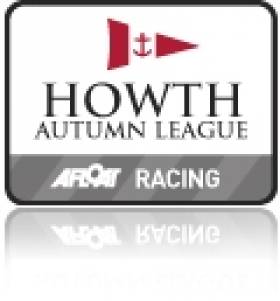Displaying items by tag: Team PR Reilly
Another large entry expected for WD-40 Autumn League at Howth
Howth Yacht Club’s ever-popular 6-race Autumn League, which will attract over 130 entries in 11 classes, starts next Sunday (25th September), with Team PR Reilly as the title sponsor using its WD-40 brand.
Team PR Reilly is Ireland’s largest distributor of motor parts and car accessories and its sponsorship continues a close association with Howth Yacht Club, having supported previous years’ Autumn Leagues with its WD-40 and Green Works brands.
Additional sponsorship will be provided by HB Dennis Airside, the Range Rover, Land Rover and Volvo dealer, who will use the Volvo brand with which it supported the Puppeteer Nationals earlier in the year. Prizes of a number of 1-year Windguru PRO subscriptions have also been offered by Windguru.
Event Chairman, Brian O’Neill said, “We are delighted to receive offers of sponsorship from Team PR Reilly, HB Dennis and Windguru. Their support is crucial to the success of events like this and we truly value that support. The stage is now set for an exciting competition for competitors, club and sponsors alike.”
In a repeat of last year’s successful format, the WD-40 Autumn League will include four Sunday ‘round the cans’ races and culminate with two back-to-back windward-leeward races on Saturday 22nd October. The Sunday start times have been put back by one hour to accommodate competitors wishing to watch Irish World Cup Rugby matches earlier each morning.
The event will again feature a Mini Series for Cruiser classes over the last three weekends to encourage southside entries after the Dublin Bay season ends.
Six one-design classes will be given starts, including the J24 Class just after its BMW European Championships at Howth. The Heineken Trophy will be presented to the best overall winner and the Olympus Trophy will go to the best team of three boats (each boat from a different class) declared before the first race.
Entries can be made online at www.hyc.ie





























































